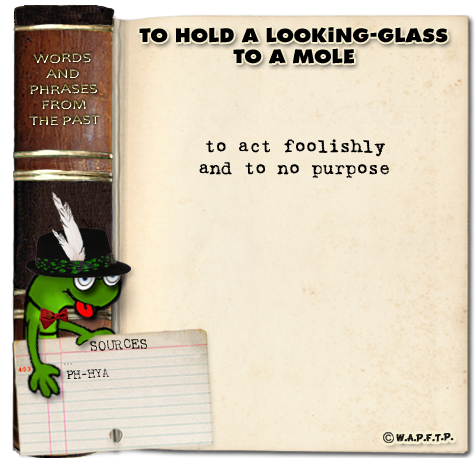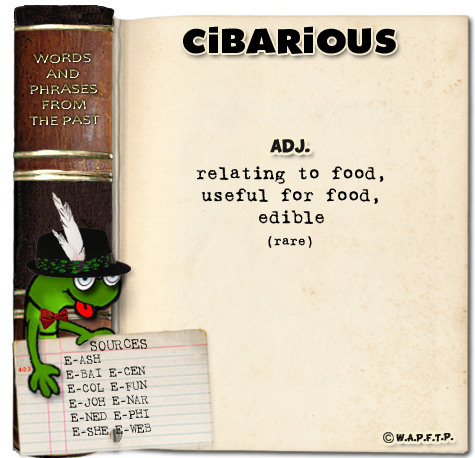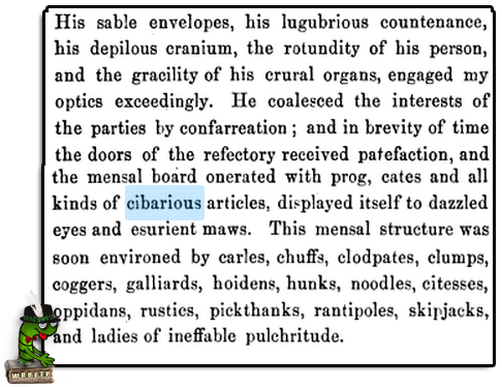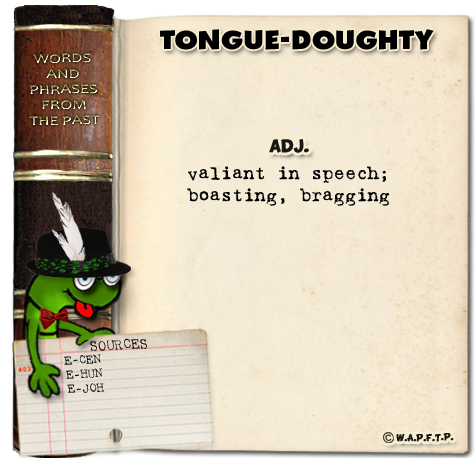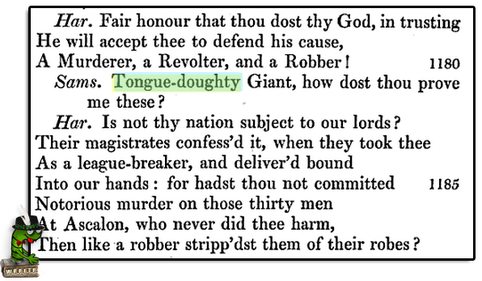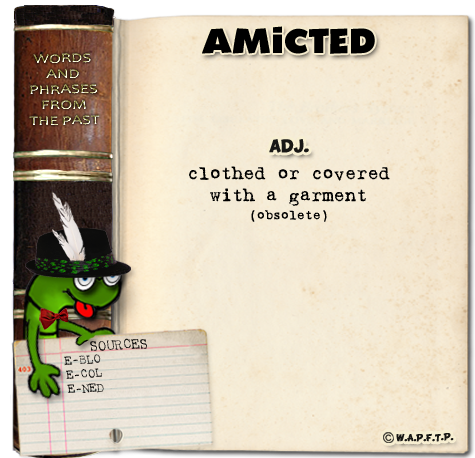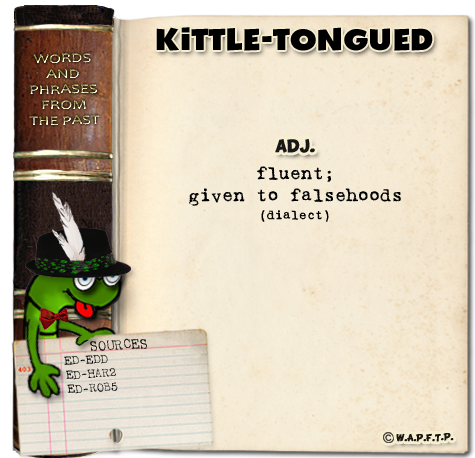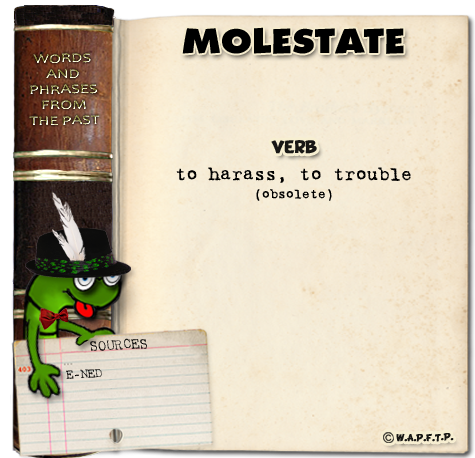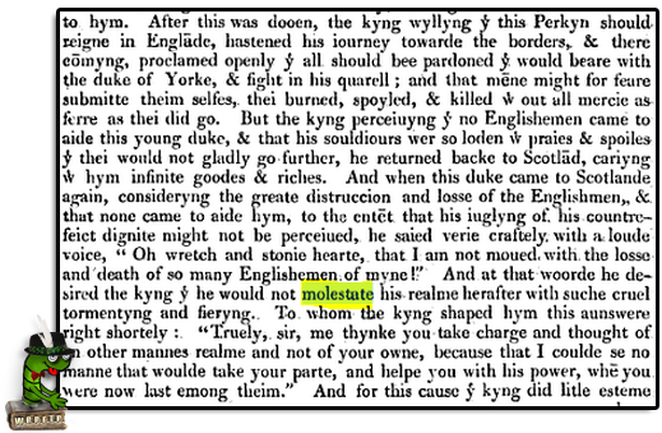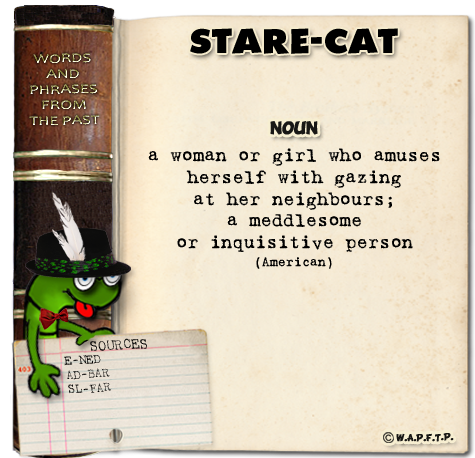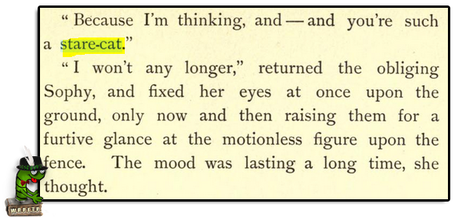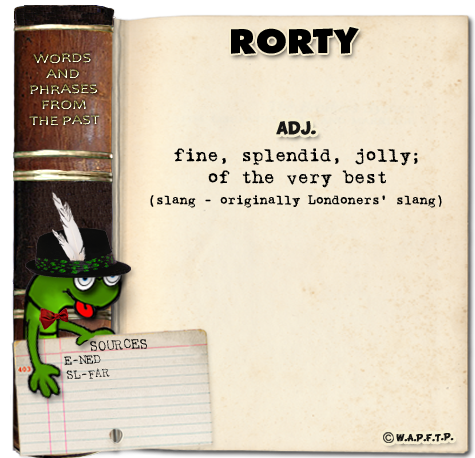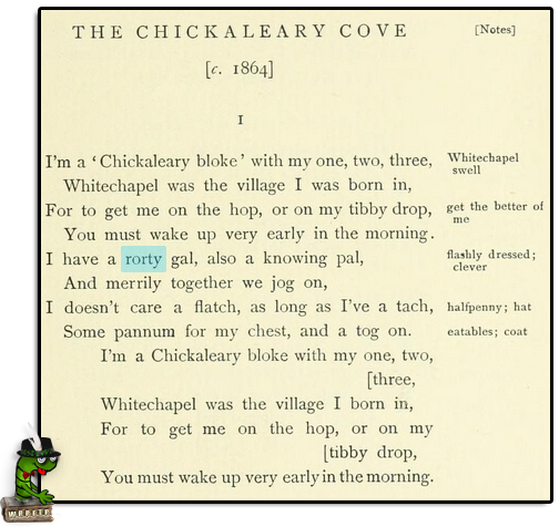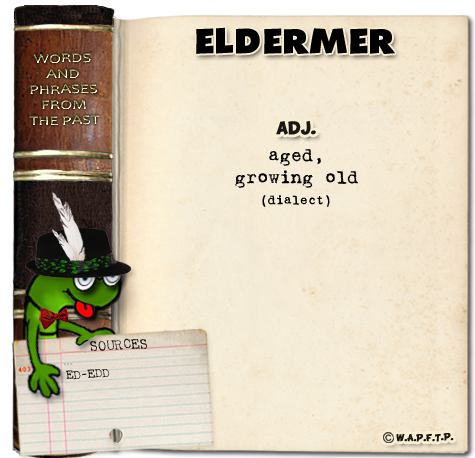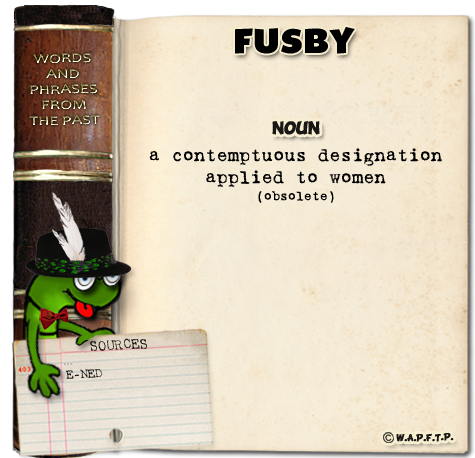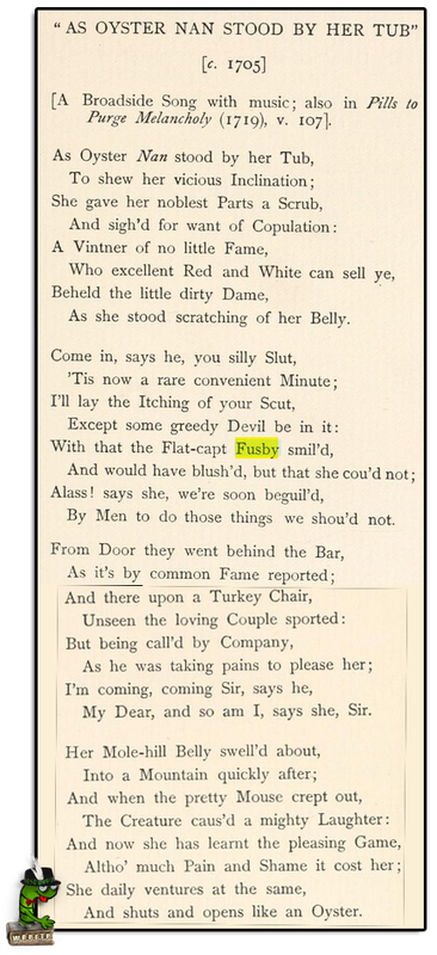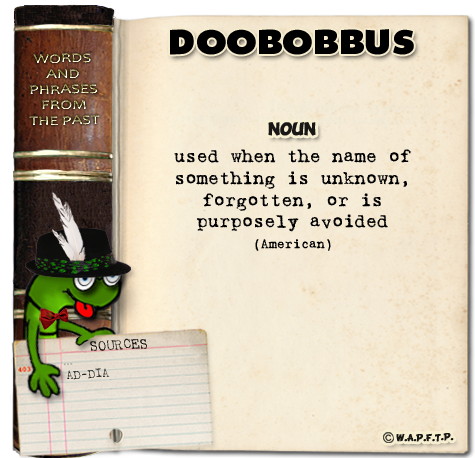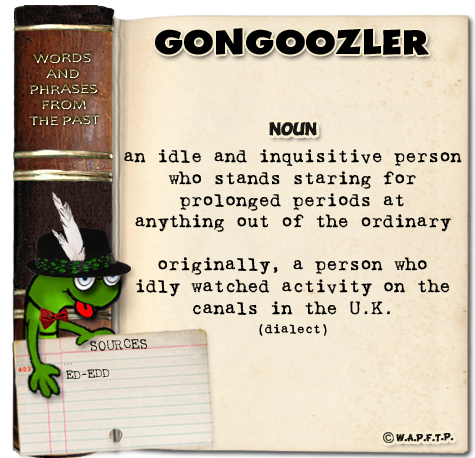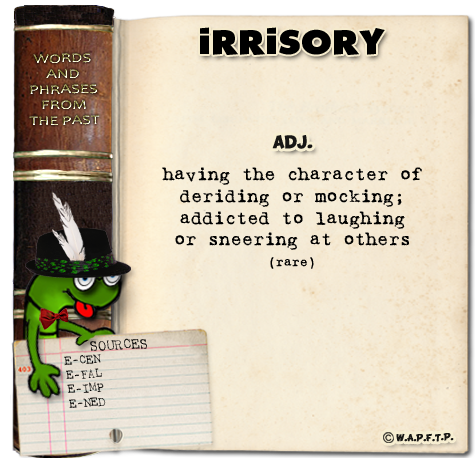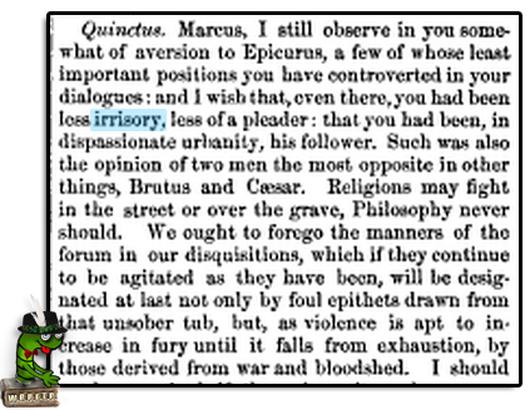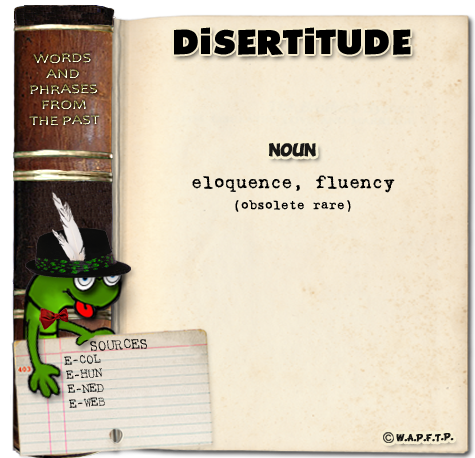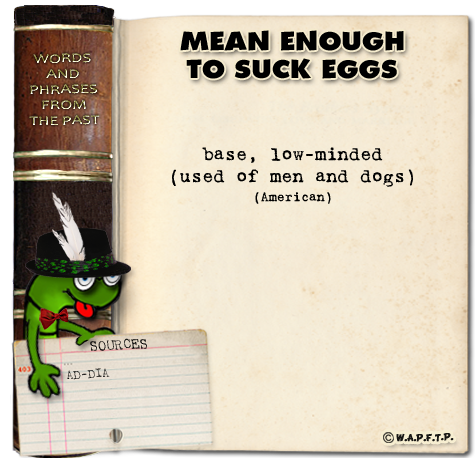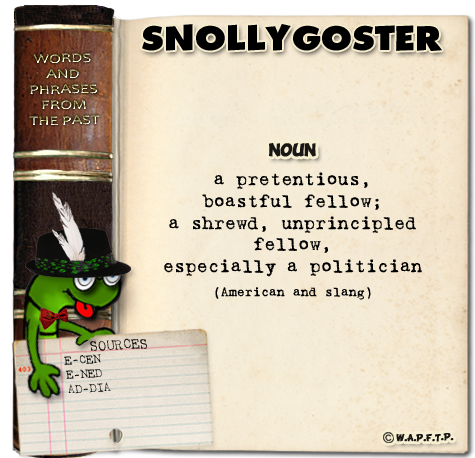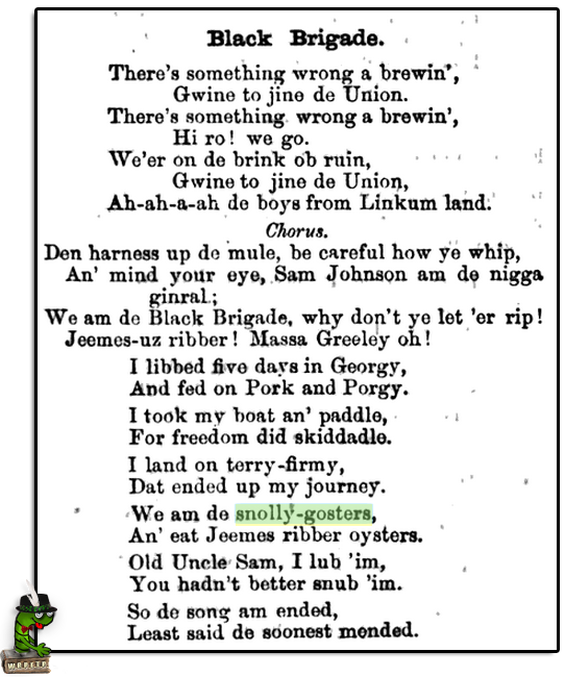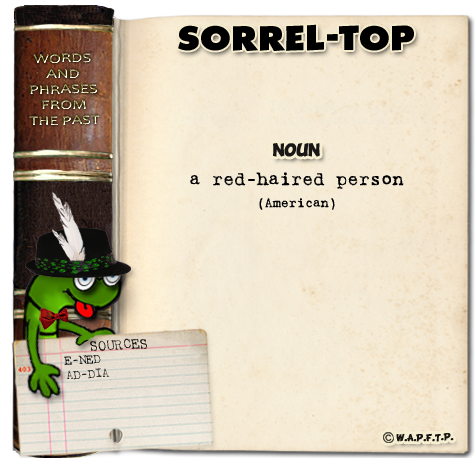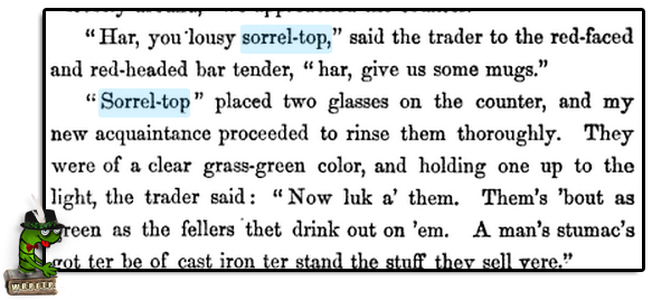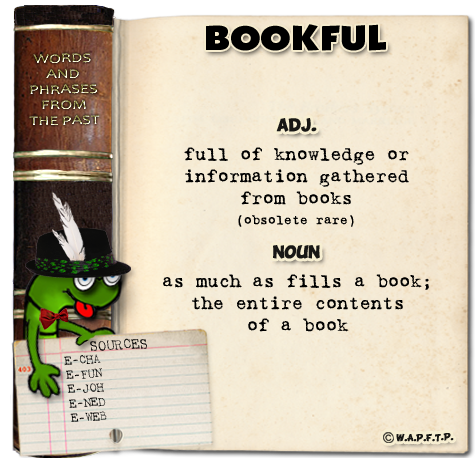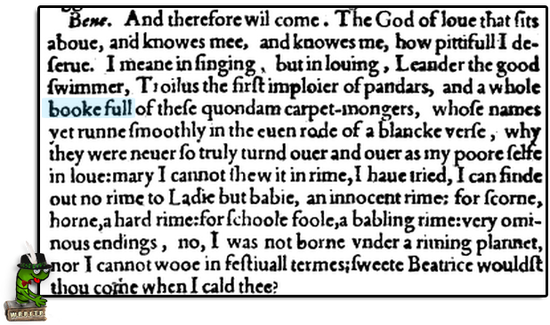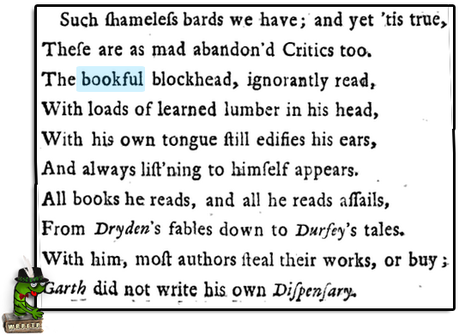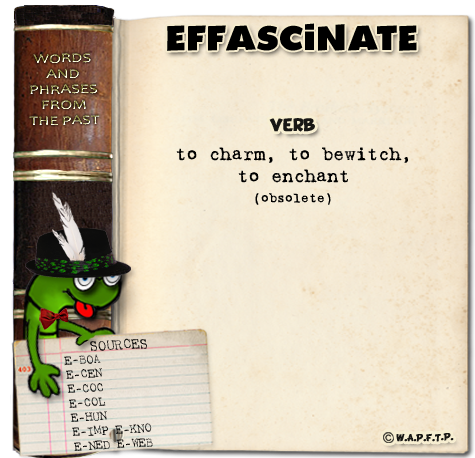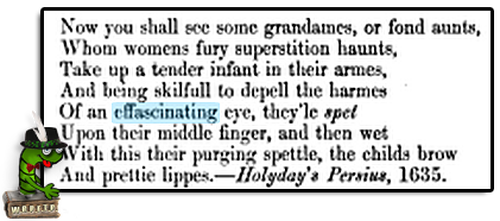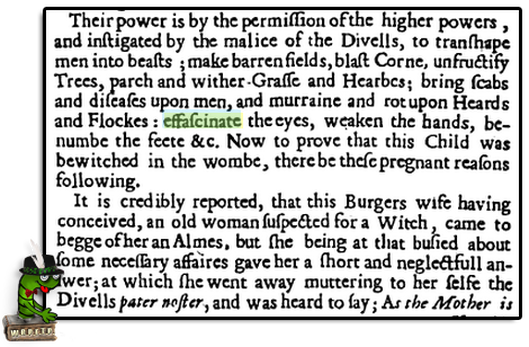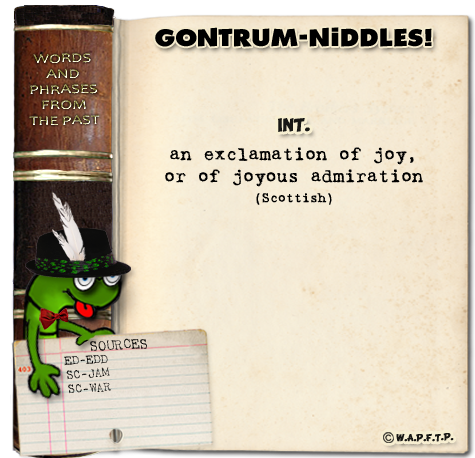|
0 Comments
from Latin cibārius from cibāria things used for food 1656 - Glossographia, Thomas Blount; "Cibarious, pertaining to meat, fit to be eaten" From: Letters to Squire Pedant: In the East
By Lorenzo Altisonant, an Emigrant to the West (Samuel K. Hoshour) Fourth Edition, 1870 No. IV. Edacityville, Occident, July 6, 1842 P. 25 1671 - Samson Agonistes, John Milton; see Example below From: The Poetical Works of John Milton,
With Notes of Various Authors, By The Rev. Henry John Todd, Vol III, 1842 Samson Agonistes in early use, from French amict, later from original Latin amictus something thrown round the body, a loose upper garment, from amictus pa. pple. of amicīre from am(b)- about + iacĕre for iaci-ĕre to throw 1656 - Glossographia, Thomas Blount;
"Amicted, Cloathed or covered with a garment" from ppl. stem of Latin molestāre molest (vb.) 1543 - A Continuacion of the Chronicle of England, Begynning where J. Hardyng left (1470-1543), Richard Grafton: see Example below From: The Chronicle of Iohn Hardyng
Richard Grafton, 1812 Henry the Seventh P. 573 1859 - Dictionary of Americanisms, A Glossary of Words and Phrases usually regarded as peculiar to the United States, John Russell Bartlett; "Stare-catm a woman or girl who amuses herself with gazing at her neighbors" From: A Successful Venture.
By Ellen Douglas Deland, 1897 Chapter V, Peter Seeks Information P. 85 of obscure origin c 1864 - The Chickaleary Cove, Vance; see Example below From: Musa Pedestris
Three Centuries of Canting Songs and Slang Rhymes [1536-1896] By John S. Farmer, 1896 The Chickaleary Cove, Vance P. 161 From: The English Dialect Dictionary,
Joseph Wright, 1898-1905 ? = fubsy (fat and squat) 1719 - Wit and Mirth: Or Pills to Purge Melancholy, Being a Collection of . . Ballads and Songs, Thomas D'Urfey; see Example below (Note: the example shows the song containing 'fusby' as being c 1705 - so possibly in print prior to 1719?) From: Merry Songs and Ballads
Prior to the Year A.D. 1800 Edited by John S. Farmer, Volume I., 1897 From: Dialect Notes,
A Publication of the American Dialect Society, 1905-1912 origin unknown;
(believed to have its origin in the Lake District of England) cf. Lincolnshire dialect gawn ‘stare vacantly or curiously’, gooze (also goozen) ‘stare aimlessly, gape’; from Late Latin irrisorius, from Latin irrisus (past participle of irridēre to laugh at) 1824 - Imaginary Conversations of Literary Men and Statesmen, Walter Landor; see Example below From: The Works of Walter Savage Landor
Volume I, 1853 Imaginary Conversations Marcus Tullius and Quinctus Cicero P. 244 from late Latin disertitūdo eloquence, from disertus disert (adj.) fluent in speech 1656 - Glossographia, Thomas Blount;
"Disertitude, eloquence" 1846 - Frankfort Commonwealth (Kentucky) (April 7); “Now here I am a rale propelling, double revolving locomotive Snolly Goster, ready to attack anything.” From: Bryant's New Songster.
Comprising a Careful Selection of the Newest and Most Popular Sentimental and Comic Songs Lately Introduced by the Bryant Brothers, 1864 from sorrel (adj.) of a bright chestnut colour 1863 - My Southern Friends, 'Edmund Kirke' (pseudonym of James Roberts Gilmore); see Example below From: My Southern Friends
By Edmund Kirke, 1863 Chapter IV. P. 58 1599 - Much Adoe About Nothing, William Shakespeare; see below From: Much Adoe about Nothing By William Shakespeare, 1600 Reprinted ? From: Miscellaneous Poems,
By Alexander Pope The Fifth Edition, Volume I, 1727 An Essay on Criticism P. 92 from Latin effascināt- ppl. stem of effascināre 1616 - A, Persius Flaccus bis Satires, by Barten Holyday, in J. O. Halliwell's Works of Shakespeare; see below From: The Works of William Shakespeare Edited by James O. Halliwell Volume V, 1856 The Merchant of Venice. Notes to the First Act P. 330 From: Ashbee's Occasional Fac-simile Reprints of Rare English Tracts.
By Edmund William Ashbee, 1649 A Certaine Relation of the Hog-faced Gentlewoman Called Mistress Tannakin Skinker, 1640 P. lxxv |
Archives
September 2021
|
